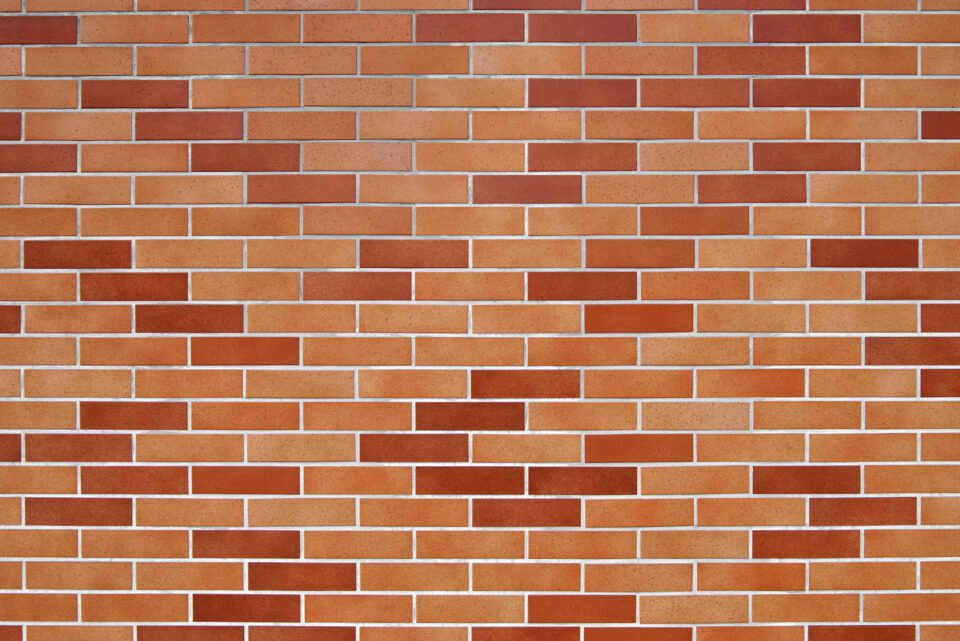How Many Bricks Do I Need per M2?
Whether you’re building a small wall or a large house, it’s important to accurately estimate the number of bricks needed, both so that you have the amount needed to hand during construction, and so that you don’t waste money on materials that aren’t needed. In this guide from Building Materials Nationwide, we’ll answer some key questions about bricks, covering the number of bricks needed for a square metre wall, the number of bricks sold in a pallet, and the amount a bricklayer can lay within a working day.
How Many Bricks per M2?
A standard-size brick within the UK is 215 x 102.5 x 65mm, which is the size we will be using throughout this article. This will be the size of almost all bricks used in walls and houses, though there are some different brick sizes, and concrete blocks tend to be larger. When calculating the number of bricks for a certain space, you’ll need to factor in the 10mm of mortar needed for bricklaying, which will be on both horizontal and vertical joins. There are two basic types of brick walls, a half-brick wall and a one-brick wall.
A half-brick wall will be the depth of a standard brick (102.5mm), with each line of bricks at a half-brick difference from the lines above and below to ensure strength. A 1m2 wall built to half brick depth will require 60 standard-size bricks. A one-brick wall will be the thickness of a brick’s length (215mm), with a pattern of laying that combines different placements to emphasise strength. A 1m2 wall built to one brick thickness will require 120 standard bricks. The term linear metre is sometimes used within the building industry but essentially means a standard metre, so the number of bricks needed for a linear metre-squared wall would be the same.
Looking For Quality Bricks?
-
3 - 5 Working Day Delivery
- Colour: Red Multi
- Contribute to thermal mass
-
3 - 5 Working Day Delivery
- Colour: Grey
- Recyclable at end of use
-
3 - 5 Working Day Delivery
- Colour: Red
- BES 6001 certification
How Many Bricks in a Pallet?
There is not an exact answer to the number of bricks on a standard pallet, as the number can vary quite a bit. However, in most cases, you will be looking at between 400 and 600 bricks in a pallet, which will sometimes be referred to as a pack. This is a big range, and within our selection of bricks for sale, you’ll find numbers outside of it. You should always find the exact number in a pallet before you calculate costs and the number needed, rather than making assumptions.
How Many Bags of Cement Do I Need to Lay 1000 Bricks?
A solid estimate is that you’ll need 1kg of mortar to lay a single brick, adding up to 1 tonne for 1000 bricks. If mixing mortar in the UK, a 4 to 1 ratio of sand and cement would probably be used, meaning 200kg of cement and 800kg of sand. This would be eight 25kg bags of cement for 1000 bricks. A single 850kg bulk bag of sand will be a better choice than buying 25kg bags.

How Many Bricks Can A Bricklayer Lay in a Day?
In a perfect setting with no issues, a bricklayer can lay up to 500 bricks a day. This number can be reduced by 100s due to complex builds, adverse weather, or any of the number of issues that can arise on the day. Bricklayers tend to either give quotes based on their day rate or their rate per 1000 bricks.
How Many Bricks Are Used to Build a Wall?
Using the numbers provided earlier you’ll be able to work out the number of bricks required to build both half-brick and one-brick walls, including the mortar joints. Simply multiply the number (60 and 120) per m2 by the number of metres squared the dimensions of the wall will be. For the surface area times the number of metres long the wall is by the number of metres high. To give an example, for a 12m2 wall, you’ll need to purchase 720 bricks for a half brick wall, and 1440 bricks for a one brick wall.
How Many Bricks Are Used to Build a UK House?
This number will vary wildly depending on the size of a house and its construction. For instance, a cavity wall, typically used for the exterior of a home, would require two lines of bricks, but within many newer homes stud walls are used for internal partitioning, reducing the number of bricks needed. While the answer is likely to be somewhere in the thousands, this is something that will need to be established based on the blueprints for a house.
Our Wide Selection of Quality Bricks For Sale
Building Materials Nationwide stocks a range of quality bricks for sale across the UK, with facing bricks, engineering bricks, and concrete blocks available. We aim to provide all the building supplies you could need, working with builders, contractors and experienced DIYers alike. For customers within the industry, we offer trade accounts through our website, granting access to our network of suppliers, our express delivery options, and the services of a dedicated account manager. Sign up for a trade account today to start taking advantage. You can also send us any questions using the below contact form.












